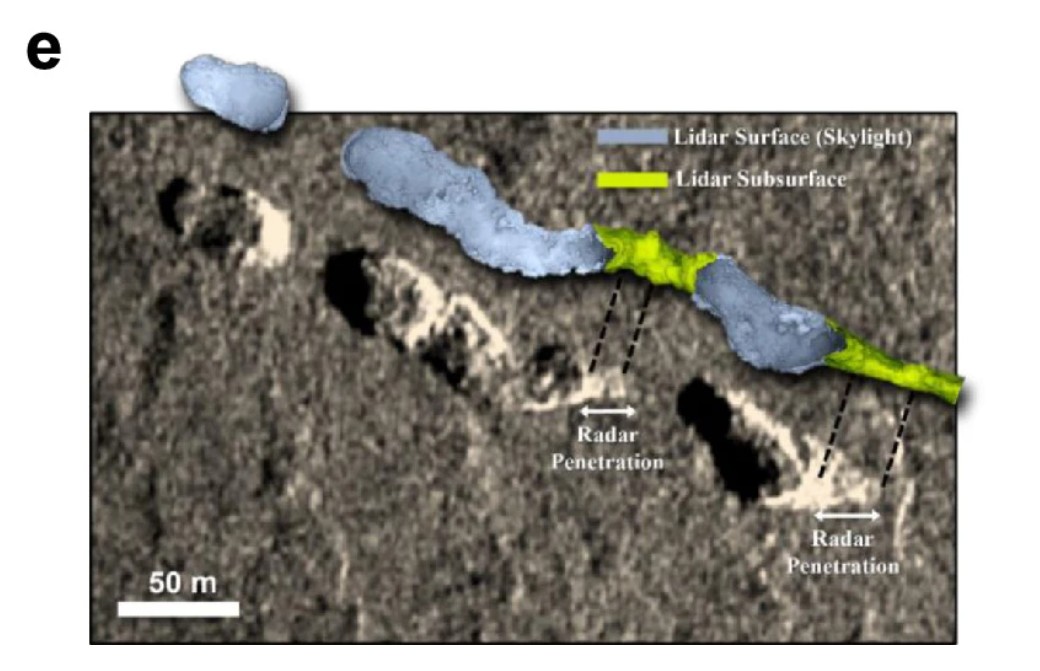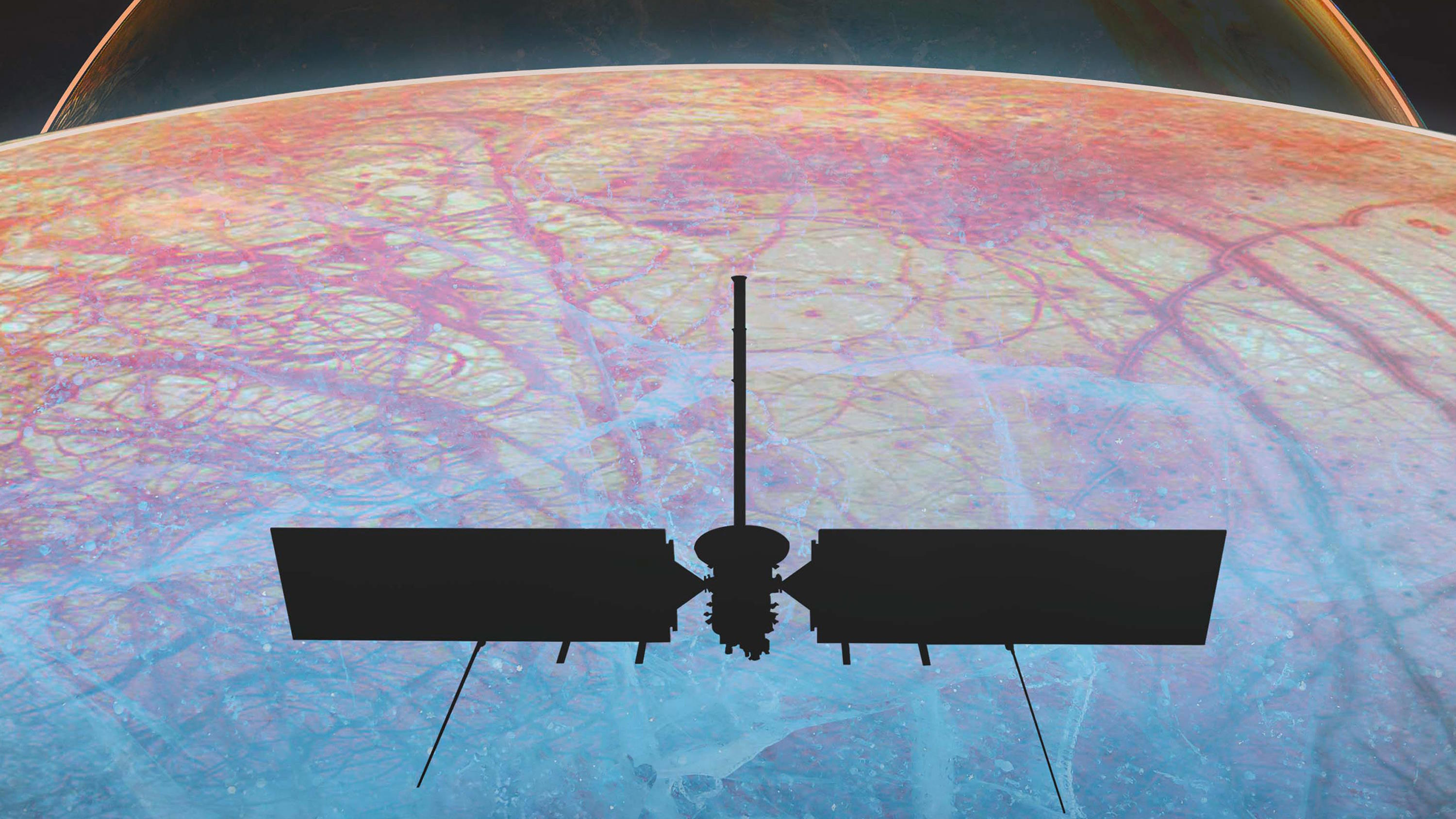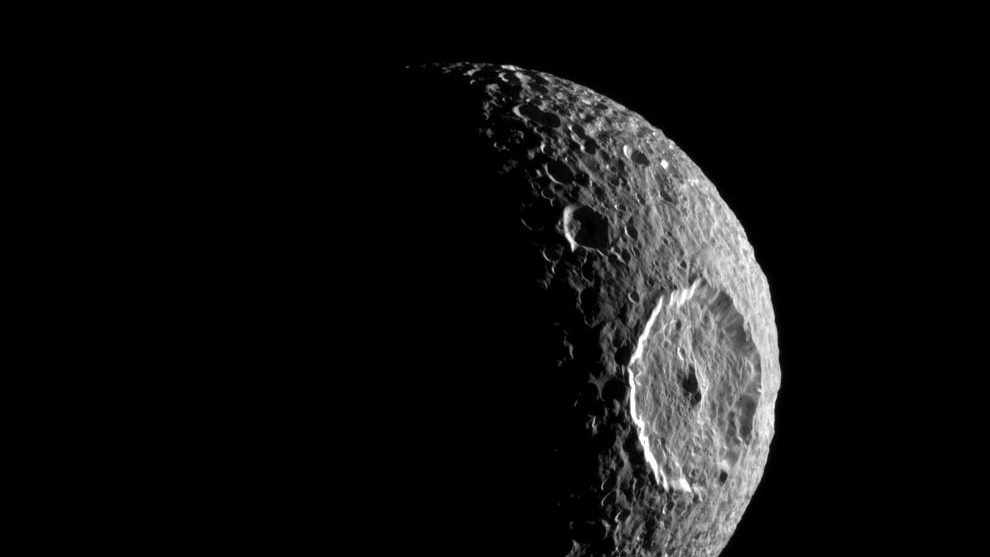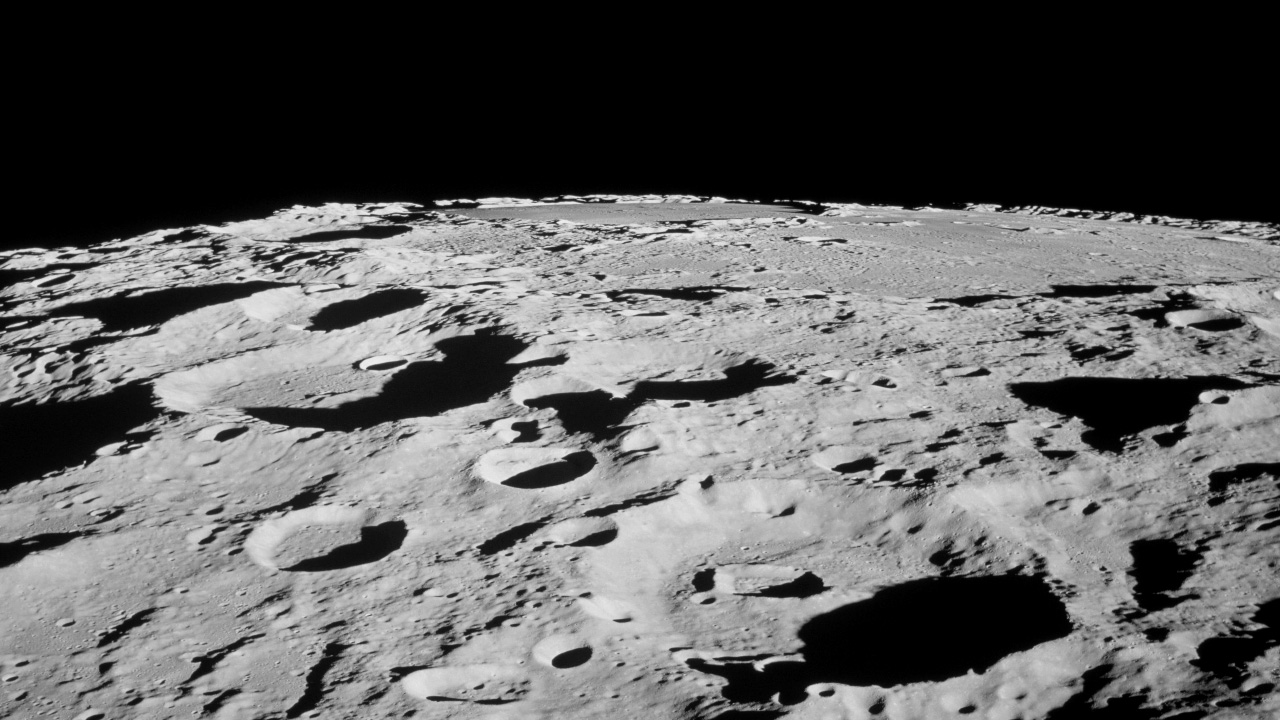Finding caves on the Moon is great. On Mars? Even better.

- Radar images taken by the Lunar Reconnaissance Orbiter in 2010 suggest the presence of caves beneath the Moon’s Sea of Tranquility.
- Moon caves could offer astronauts ideal locations for establishing lunar bases and studying the satellite’s geologic history.
- Caves on Mars could provide the same for future explorers and are also a potential refuge for Martian microbial life.
After examining radar images taken by the Lunar Reconnaissance Orbiter in 2010, Leonardo Carrer and his team found that a deep pit discovered 15 years ago in the Sea of Tranquility — the same region of the Moon where the Apollo 11 astronauts landed — appears to lead to a subsurface cave conduit tens of meters long. The researchers believe the site could prove a promising location for a future lunar base.
Although we typically imagine such bases on the Moon’s surface, the high-radiation environment and huge temperature swings might force astronauts to live several meters underground. A natural cave with a large entrance could save a lot of digging. Many of the world’s space agencies do, in fact, have long-term plans for lunar bases, and while the Sea of Tranquility doesn’t offer the same advantages as other lunar destinations like the Aitken Basin, it does have historical significance as the site of the first Moon landing.

As for its scientific appeal, basalt layers in the region could retain evidence from when volcanic activity on the Moon peaked three and a half billion years ago. The outgassing during this period could have been so extensive that a temporary atmosphere about 1% as substantial as Earth’s could have built up. If so, it would have created a short-term habitability window that might have allowed microbial life to exist for an extremely limited time. Finding evidence in the basalt to support that hypothesis would be difficult, for sure. However, exploring a lunar cave would still provide a valuable record of the Moon’s geological, meteorological, and environmental history.
Even more exciting would be exploring caves on Mars, which may still be a habitat for life today. Thousands of possible cave entrances have been identified on the planet — everything from “skylights” to deep fractures, pit craters, and other void spaces. It’s difficult to say from orbital images how deep these caves go, but a large number of them should reach far down into the subsurface. Many of these are lava tube caves, which are also common on Earth.
Where surface conditions on an extraterrestrial world are harsh, caves could represent a potential habitat for life.
For example, the Lava River Cave in the Coconino National Forest of northern Arizona is a mile-long cave formed 700,000 years ago by molten rock erupting from a volcanic vent. The outer parts of the flow cooled and solidified first, creating a tube in which the lava river continued to flow. Similar scenarios have surely occurred on Mars, and the caves there are likely to be larger than similar ones on Earth due to the lower gravitational force.
As on the Moon, caves on Mars would provide shelter from radiation and extreme temperature swings (although these are less of a problem on Mars than on the Moon). Atmospheric pressure deep inside the caves would also be greater than on the Martian surface, and liquid water, if there is any, could potentially provide a refuge for microbial life. The same water would also be a valuable resource for human explorers.
Back in 2015, at the First Landing Site/Exploration Zone Workshop for Human Missions to the Surface of Mars, sponsored by the Lunar and Planetary Institute in Houston, I was part of a group suggesting that caves in Hebrus Valles would be a good location for a first human outpost on Mars. We argued that the subsurface caverns and steep walls in the valley might represent natural terrain features that could be adapted for construction purposes, and possible remnant water ice would be worth investigating, both for its astrobiological potential and usefulness to astronauts.
Speculation about extraterrestrial caves doesn’t have to stop there. A research team led by Michael Malaska from the Jet Propulsion Lab claimed a couple of years ago that re-occurring hydrocarbon rains on Saturn’s moon Titan are likely to create subsurface conduits. Using data from the Cassini orbiter, they took an inventory of different terrains on Titan that could host potential subsurface access points and identified more than 21,000 locations where caves might exist. Pluto and the moons Enceladus and Triton are other likely places to look.
Where surface conditions on an extraterrestrial world are harsh, caves could represent a potential habitat for life. Just as caves served as shelters for humans in the Stone Age, they could serve that role again as humanity moves away from its planet of origin. As for the many scientific and engineering challenges that need to be tackled first, some researchers are already working on resolving them. Let’s hope we start to explore extraterrestrial caves soon.





